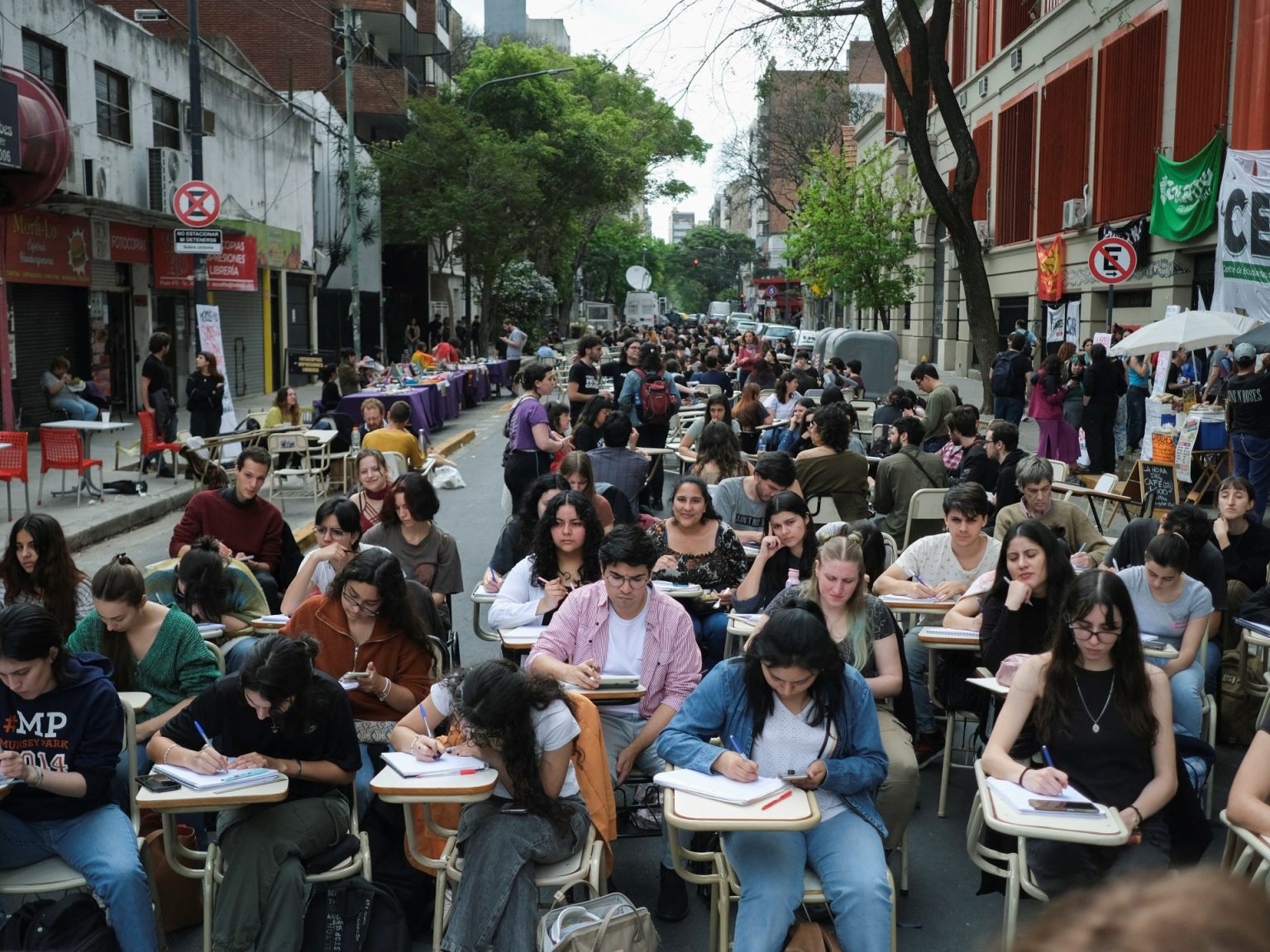Argentina’s lower house of Congress recently failed to overturn President Javier Milei’s veto of a bill aimed at increasing public university funding. The bill would have aligned funding with Argentina’s high inflation rate, which currently stands at around 240 percent. Despite mass protests against austerity measures and university cuts, Milei’s veto was upheld in a vote that fell short of the two-thirds majority required to overrule it. Milei, a self-proclaimed anarcho-capitalist, has been focused on cutting public spending to address the country’s economic crisis, leading to significant cuts in health, pension, and education spending.
The vote saw 160 parliamentarians in favor of the university funding bill, with 84 against and five abstentions, leaving them six votes short of the required two-thirds majority. Milei’s far-right party, while a minority in Congress, has formed alliances with conservative lawmakers to block opposition efforts to pass the legislation. The bill was seen as crucial by students and educators who have been advocating for increased investment in public universities, which are free to attend for all. Protesters gathered outside Congress in Buenos Aires, highlighting the importance of education and expressing concern about the future of the country’s public university system.
Students and supporters of public education have been voicing their concerns about the impact of funding cuts on their ability to access higher education. Many have cited the importance of the free public university system in enabling them to pursue their academic and career goals. The protests have gained momentum with the backing of labor unions, opposition parties, and private universities, with a million protesters reported countrywide during one of the major demonstrations. The protests have been ongoing, with a significant turnout earlier this month as well, showcasing widespread dissatisfaction with the government’s austerity measures and education cuts.
President Milei has defended his veto of the university funding bill, arguing that it would disrupt the fiscal balance he has been working to achieve to address Argentina’s economic crisis. He has been focused on reducing public spending and has been critical of the education system, referring to the funding bill as unjustified. The economic challenges facing Argentina, including high inflation and increasing poverty rates, have led to a climate of unrest and opposition to government policies, particularly those related to public services like education. The failure to overturn the veto points to ongoing challenges in finding a balance between economic stability and social welfare priorities.
The recent events in Argentina highlight the complex relationship between economic policy decisions and social welfare concerns. The government’s austerity measures, led by President Milei, have faced backlash from various segments of society, particularly students and educators who rely on public education. The protests and demonstrations indicate a growing resistance to cuts in public services and a demand for increased investment in education and other essential areas. The political landscape in Argentina remains contentious, with debates over the best approach to addressing the economic crisis while ensuring access to quality education for all citizens.
Despite the failure to overrule President Milei’s veto, the demonstrations and advocacy efforts by students and supporters of public education have brought attention to the importance of investing in public universities. The ongoing protests serve as a reminder of the significant role that education plays in societal development and individual opportunities. As Argentina grapples with economic challenges and social unrest, finding a balance between fiscal responsibility and maintaining vital public services, such as education, will continue to be a central issue for policymakers and the public.


